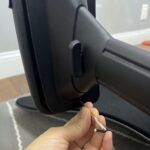Dealing with car repairs can be stressful. Beyond worrying about what’s wrong with your vehicle, you’re likely concerned about the cost and whether you’re getting honest service. One question that might cross your mind to save money is: should you bring your own spare parts to a car repair shop? It seems like a simple way to cut down on expenses, but it’s not always that straightforward. Let’s delve into the pros and cons of supplying your own parts and what you need to consider before making this decision.
When your car is acting up, the first step is often identifying the problem. Many auto parts stores offer free computer diagnostic tests, which can give you an initial idea of what might be wrong before you even visit a repair shop. This information can be helpful to compare with the diagnosis from the repair shop and ensure you’re on the same page.
Understanding your car’s issue beforehand can empower you when discussing repairs with a mechanic.
The Potential Appeal of Supplying Your Own Parts
The main reason car owners consider bringing their own parts is to save money. Repair shops typically mark up the price of parts they source to make a profit. By purchasing the parts yourself, you can potentially avoid this markup and find parts at a lower cost from online retailers or discount auto parts stores.
Another potential advantage is control over the quality of parts used. You might prefer to use Original Equipment Manufacturer (OEM) parts, believing they are superior in quality and fit compared to aftermarket parts. Supplying your own OEM parts can ensure that your car is repaired with components you trust.
Why Bringing Your Own Parts Can Be Problematic
While the idea of saving money and controlling part quality is appealing, there are significant downsides to bringing your own parts to a car repair shop.
Warranty Issues: Most repair shops offer a warranty on both parts and labor when they supply the parts. If you bring your own parts and they fail, the shop will likely only warranty their labor, not the part itself. This means if the part is defective, you’ll be responsible for the cost of a new part and potentially additional labor to replace it again. Furthermore, using non-OEM parts could potentially void your vehicle’s manufacturer warranty in some cases, especially for newer cars.
Shop Refusal and Liability: Many reputable repair shops are hesitant or outright refuse to install customer-supplied parts. This is due to liability concerns. If a part you provide is incorrect, faulty, or fails prematurely, the shop could be held liable for damages or further repairs, even if they weren’t responsible for the part’s quality. Shops prefer to control the parts they use to ensure quality and minimize their risk.
Compatibility and Expertise: Mechanics have experience with various parts and know which brands and types are reliable for specific vehicles. They also have access to parts catalogs and systems to ensure they order the correct components for your car. If you bring your own parts, you take on the responsibility of ensuring they are the correct fit and quality, and you may lack the expertise to do so effectively.
Always get a written authorization before any inspection or repair work begins to protect yourself and ensure clear communication with the repair shop.
No Labor Discount: Don’t expect to get a discount on labor costs if you supply your own parts. Labor charges are separate from parts markup, and mechanics are still charging for their time, expertise, and the use of their shop’s facilities. In fact, some shops might even charge a higher labor rate when installing customer-supplied parts to offset the risk and potential complications.
When Might It Be Acceptable to Bring Your Own Parts?
There might be limited situations where bringing your own parts could be considered, but it’s generally not recommended.
Specialty or Rare Parts: If you own a classic or rare car where parts are difficult to source or are highly specialized, a repair shop might be more open to using parts you provide. In these cases, clear communication and agreement on warranty terms beforehand are crucial.
Simple, Straightforward Repairs: For very simple repairs where the part is easily identifiable and the risk of complications is low (e.g., replacing windshield wipers or a light bulb – though these are often DIY tasks), a shop might agree, but even then, the savings might not be significant enough to justify the potential hassle.
With Prior Agreement and Understanding: If you have a long-standing relationship with a trusted mechanic and they are willing to install your parts with a clear understanding of the warranty limitations and liability, it could be an option. However, this is on a case-by-case basis and requires open communication and mutual agreement.
Focus on Finding a Reputable Repair Shop
Instead of focusing on supplying your own parts, your energy is better spent finding a trustworthy and reputable car repair shop in the first place. A good shop will:
- Have ASE-certified mechanics: ASE certification indicates that mechanics have met certain standards of knowledge and competence.
- Provide written estimates: Always get a written estimate before authorizing any repairs. This estimate should detail the work to be done, parts costs, labor charges, and total cost.
- Clearly explain repairs: A reputable mechanic will clearly explain the problem, the necessary repairs, and answer your questions patiently.
- Offer warranties: They should offer warranties on both parts and labor when they supply the parts.
- Be transparent and communicative: They should keep you informed throughout the repair process and seek your approval for any changes or additional work.
- Have positive reviews: Check online reviews and ask for recommendations from friends and family to gauge a shop’s reputation.
Remember, under consumer protection laws, it is illegal for a repair shop to perform unauthorized repairs or make false claims about needed services. Familiarize yourself with your rights as a consumer, and don’t hesitate to question any charges or services you don’t understand.
Key Takeaway: While the idea of bringing your own parts to a car repair shop might seem appealing for cost savings, it often introduces more complications and risks than benefits. Focus on building a relationship with a reputable mechanic who you trust to provide quality parts and service. Clear communication, written agreements, and understanding your consumer rights are your best defenses against unnecessary expenses and unsatisfactory repairs.


